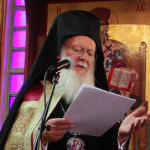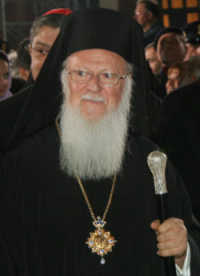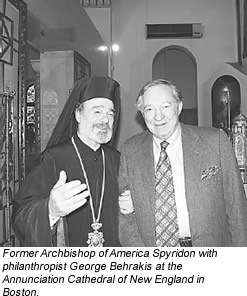Deprecated: trim(): Passing null to parameter #1 ($string) of type string is deprecated in
/home/aoiusa/public_html/wp-content/plugins/sexybookmarks/public.php on line
388
Deprecated: trim(): Passing null to parameter #1 ($string) of type string is deprecated in
/home/aoiusa/public_html/wp-content/plugins/sexybookmarks/public.php on line
394
Deprecated: trim(): Passing null to parameter #1 ($string) of type string is deprecated in
/home/aoiusa/public_html/wp-content/plugins/sexybookmarks/public.php on line
400
 This is sure to warm the heart of religious liberals who are always on prowl looking for new ways to establish their righteousness. Global warming is disintegrating like the Death Star penetrated by Luke Skywalker’s missile and another cause has to be found quick. Maybe they can dust off the ‘peacemaker’ jargon. It has a relatively short shelf-life (except when conservatives are in power) but the recycling potential is tremendous.
This is sure to warm the heart of religious liberals who are always on prowl looking for new ways to establish their righteousness. Global warming is disintegrating like the Death Star penetrated by Luke Skywalker’s missile and another cause has to be found quick. Maybe they can dust off the ‘peacemaker’ jargon. It has a relatively short shelf-life (except when conservatives are in power) but the recycling potential is tremendous.
I mean no disrespect to the WCC, but hearing the same old cant from the same old boomers is like listening to a car alarm that won’t shut off. Why is the Ecumenical Patriarch buying into it? It carries no moral weight or real cultural import. No one is for war. But it is foolish to think that the WCC will have any bearing on war or peace whatsoever. No one apart from their fellow-travelers takes them seriously. And why should they? Nothing about them ever changes.
In an encyclical letter intended to be read in congregations of the Church of Constantinople around the world on Sunday 22 May, the Ecumenical Patriarch of Constantinople Bartholomew I welcomes “with great joy” the initiative of the World Council of Churches (WCC) in convening the International Ecumenical Peace Convocation (IEPC) in Kingston, Jamaica from 17 through 25 May 2011.
Source: Overcoming Violence: Churches Seeking Reconciliation and Peace (WCC)
To the Plenitude of the Church:
Grace, Mercy and Peace From our Savior the Lord of Peace
Sunday, May 22, 2011
Beloved brothers and children in Christ,
At the celebration of each Divine Liturgy, after glorifying the divine name and blessing the heavenly kingdom, we offer three petitions “to the Lord” “for peace,” “for the peace from above,” and “for the peace of the whole world.” It is our passionate yearning that our world may reflect the kingdom of God, that the God’s love may reign “on earth as it is in heaven.”
Nevertheless, while such peace is foremost in our prayer, it is not always central in our practice. As faithful disciples of the Lord of peace, we must constantly pursue and persistently proclaim alternative ways that reject violence and war. Human conflict may well be inevitable in our world; but war and violence are certainly not. If this century will be remembered at all, it may be for “the pursuit of what makes for peace.” (Rom. 14.19)
The pursuit of peace has always proved challenging. Yet, our present situation is in at least two ways quite unprecedented. First, never before has it been possible for one group of human beings to eradicate as many people simultaneously; second, never before has humanity been in a position to destroy so much of the planet environmentally. We are faced with radically new circumstances, which demand of us an equally radical commitment to peace.
This is why we welcome with great joy the WCC/International Ecumenical Peace Convocation to be held on May 17-25, 2011, in Kingston, Jamaica, as a fitting conclusion and continuation of the World Council of Churches decade to overcome violence, a global inter-church.initiative to strengthen existing efforts and networks for preventing violence and to inspire the creation of new ones.
Now, the pursuit of peace calls for a radical reversal of what has become the normative way of survival in our world. Peace requires a sense of conversion or metanoia; it requires commitment and courage. Moreover, peacemaking is a matter of individual and institutional choice. We have it in our power either to increase the hurt inflicted on our world or to contribute toward its healing. Once again, it is a matter of choice.
Justice and peace are central themes in Scripture. However, as Orthodox Christians, we also recall the profound tradition of the Philokalia, which emphasizes that peace always – and ultimately – starts in the heart. In the words of St. Isaac the Syrian in the 7th century, “if you make peace with yourself, then heaven and earth will make peace with you.”
Nonetheless, this inner peace must be manifest in every aspect of our life and world. This is what the Jamaica Convocation underlines with its four sub-themes: peace in the community, with the earth, in the marketplace, and among peoples.
In an increasingly complex and violent world, Christian churches have come to recognize that working for peace constitutes a primary expression of their responsibility for the life of the world. They are challenged to move beyond mere rhetorical denunciations of violence, oppression and injustice, and incarnate their ethical judgments into actions that contribute to a culture of peace. This responsibility is grounded on the essential goodness of all human beings by virtue of being in God’s image and the goodness of all that God has created.
Peace is inextricably related to the notion of justice and freedom that God has granted to all human beings through Christ and the work of the Holy Spirit as a gift and vocation. It constitutes a pattern of life that reflects human participation in God’s love for the world. The dynamic nature of peace as gift and vocation does not deny the existence of tensions, which form an intrinsic element of human relationships, but can alleviate their destructive force by bringing justice and reconciliation.
The Church understands peace and peacemaking as an indispensable aspect of its life and mission to the world. It grounds this faith conviction upon the wholeness of the Biblical tradition as it is properly interpreted through the Church’s liturgical experience and practice. The Eucharist provides the space in which one discerns and experiences the fullness of the Christian faith in the history of God’s revelation. It reflects the image of God’s Trinitarian life in human beings and relates in love with the totality of the created world.
This eschatological experience of being in communion with God and participating in God’s love for the created world provides the hermeneutical key by which the community existentially interprets the fullness of Christian tradition, including Scripture, and structures the Church’s life and mission to the world. Love is the core of God’s revelation as it is revealed in Jesus Christ. Thus, in the Patristic tradition the violent texts of Scripture were understood to refer to the spiritual struggle of the believer against the devil, evil and sin. This interpretation implies that in their view the God of Jesus Christ and the Christian faith cannot be identified with violence.
Paradoxically, however, we can only become aware of the impact of our attitudes and actions on other people and on the natural environment, when we are prepared sacrifice some of the things we have learned to hold most dear. Many of our efforts for peace are futile because we are unwilling to forgo established ways of wasting and wanting. We refuse to relinquish wasteful consumerism and prideful nationalism. In peacemaking, then, it is critical that we perceive the impact of our practices on other people (especially the poor) as well as on the environment. This is precisely why there cannot be peace without justice.
“Blessed, then, are the peacemakers; for they shall be called children of God” (Matt. 5.9). To become and be called children of God is to move away from what we want to what God wants, and from what serves our own interests to what respects the rights of others. We must recognize that all human beings, and not only the few, deserve to share the resources of this world.
This is the peace that our Risen Lord offered to His disciples and the hope of our Lord for all of His children. It is also this same peace, which “surpasses all understanding” (Phil. 4.7) that, from the martyred Throne and Mother Church of Constantinople, we invoke upon all of you.
Your fervent supplicant before God,
+BARTHOLOMEW
Archbishop of Constantinople-
New Rome and Ecumenical Patriarch




